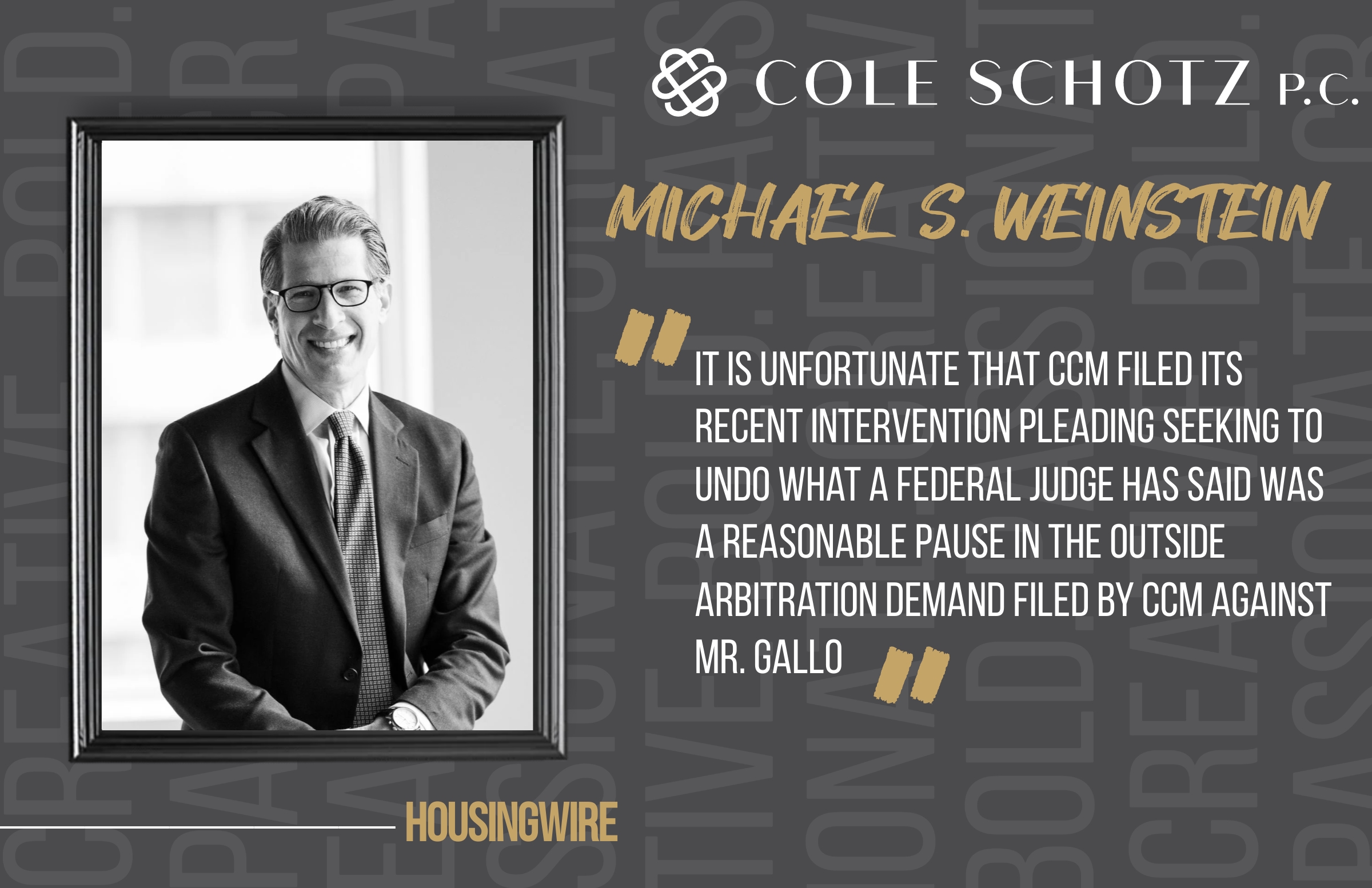NJ Tax Stop: Private, For-Profit Property May Be Tax-Exempt
In what may turn out to be a watershed moment for real property tax exemption jurisprudence in New Jersey, the Appellate Division, in Gourmet Dining LLC v. Union Township, recently held that property located on the campus of Kean University (a state-owned institution of higher education), but utilized and occupied, in part, by a for-profit restaurant, is nonetheless still entitled to a tax exemption because its use amounts to an exempt “public use” pursuant to Section 54:4-3.3 of the New Jersey statutory code.[1]
While petition for certification to the New Jersey Supreme Court is currently pending, the Appellate Division decision is significant because in reversing the decision of the New Jersey Tax Court, it held that the trial court employed too narrow a view of “public purpose” in rejecting the property owner and business operator’s claim for exemption. If petition for certification is denied or the Appellate Division is upheld, the broad understanding of “public purpose” may directly constrain the ability to tax government property even when used for private, for-profit use as long as there is some public benefit.
The New Jersey Tax Exemption Landscape
By way of background, all property in New Jersey is subject to taxation annually unless a statutory exemption applies.[3] In this regard, and applicable here, Section 54:4-3.3 provides that government property used for a public purpose is exempt from taxation. Specifically, this section provides in part:
the property of the [s]tate of New Jersey; and the property of the respective counties and municipalities, and their agencies and authorities, school districts, and other taxing districts used for public purposes … shall be exempt from taxation under this chapter[.][4]
Similarly, Section 54:4-3.6 affords local property tax exemption for nonprofit colleges, schools and academies, provided that the property is actually used for the tax-exempt purpose. In particular, N.J.S.A. provides:
[t]he following property shall be exempt from taxation under this chapter … all buildings actually used for colleges, schools, academies, or seminaries, provided that if any portion of such buildings are leased to profit-making organizations or otherwise used for purposes which are not themselves exempt from taxation, said portion shall be subject to taxation and the remaining portion only shall be exempt[.][5]
Additionally, the Leasehold Taxing Act, Section 54:4-2.3 provides:
When real estate exempt from taxation is leased to another whose property is not exempt, and the leasing of which does not make the real estate taxable, the leasehold estate and the appurtenances shall be listed as the property of the lessee thereof, or his assignee, and assessed as real estate.[6]
The Appellate Division’s Decision
With this legal backdrop the Gourmet Dining court recognized in its decision that “generally speaking, [public use] connotes an activity which serves as a benefit to the community as a whole, and which, at the same time is directly related to the functions of government[.] In each instance where the test is to be applied the decision must be reached with reference to the object sought to be accomplished and the degree and manner in which the object affects the public welfare.”[7] The court thus concluded that the concept of what constitutes a “public purpose” is to be expanded “when necessary to encompass changing public needs of a modern dynamic society.”[8]
In so doing, the Appellate Division focused on the following factors, which it concluded collectively tipped the scales in favor of its “public use” determination and the resulting application of the statutory tax exemption in the case of Gourmet Dining LLC’s operations:
- At least 10% of the subject restaurant revenues were required to be allocated to Kean University student scholarship purposes;
- The Tax Court had improperly substituted its judgment for that of the university’s board of trustees, which believed and concluded, in its approving resolution, that the introduction of an upscale restaurant on-campus would enhance the public perception of the university and the institution’s “forward-looking” status;
- The restaurant served as an important recruiting tool for the university;
- 85% of the restaurant’s employees were students of the university;
- The restaurant used produce grown on university property in its operations;
- The restaurant provided its compost waste to the university as part of a science program, which involved research projects conducted by the university’s students and faculty; and
- The University’s management arrangement with the for-profit restaurant was controlled by a license agreement [not a lease] and therefore did not trigger the exception to tax exemption prescribed by Sections 54:4-3.6 and/or 54:4-2.3, relating to improvements leased to for-profit entities.
The Gourmet Dining decision thus highlights the importance of fashioning the contractual relationship between the public entity and its for-profit counterpart in the appropriate manner (such as the use of management agreements/licenses as opposed to leases and proper resolutions adopted by the public entity’s board or controlling body) and supporting the arrangement with compelling reasons that advance undeniable public purposes (such as the specific earmarking of revenues derived from these arrangements for student scholarships) when nonprofit entities are looking to avail themselves of the significant tax advantages that are made available by the law in New Jersey.
Conclusion
When fashioned correctly, the groundwork can be laid for application of the statutory tax exemption, even in the case of for-profit operations being conducted on tax exempt premises. Careful planning and consultation, with the involvement of experienced property tax practitioners, is therefore essential in order to guide the nonprofit organizations, exempt governmental entities, and the for-profits with which they are engaged so that the “public purpose” exemption in the case of governmental entities, or the “actual use” of the property, in the case of the exemption afforded nongovernmental nonprofits comply with the requirements of the law in a manner that will be upheld by the courts.
This article was originally published in Law360.
No aspect of this advertisement has been approved by the highest court in any state.
Results may vary depending on your particular facts and legal circumstances.
As the law continues to evolve on these matters, please note that this article is current as of date and time of publication and may not reflect subsequent developments. The content and interpretation of the issues addressed herein is subject to change. Cole Schotz P.C. disclaims any and all liability with respect to actions taken or not taken based on any or all of the contents of this publication to the fullest extent permitted by law. This is for general informational purposes and does not constitute legal advice or create an attorney-client relationship. Do not act or refrain from acting upon the information contained in this publication without obtaining legal, financial and tax advice. For further information, please do not hesitate to reach out to your firm contact or to any of the attorneys listed in this publication. No aspect of this advertisement has been approved by the highest court in any state.
Join Our Mailing List
Stay up to date with the latest insights, events, and more





